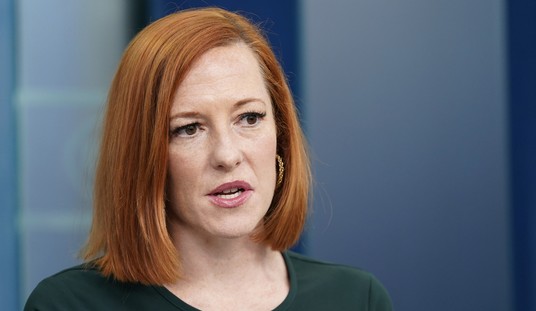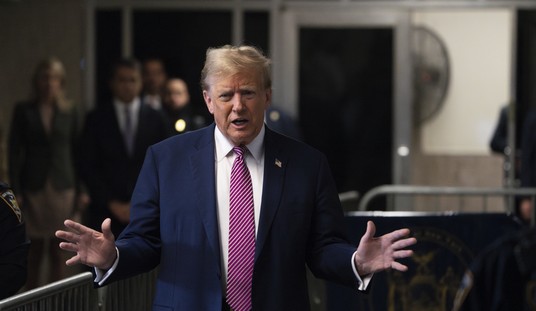While al Qaeda strives to increase its ability to attack the United States, the Obama administration is voluntarily relinquishing the tools Congress provided to fight terrorists. After September 11th, Congress granted the president special national security powers, including the right to detain and interrogate terrorists and to try them in military commissions. This marked a major policy change, with a switch in focus from punishing terrorist attacks to preventing them. Previously, the United States government primarily treated terrorists as common criminals. But due to onerous evidentiary burdens and significant jurisdictional limits, in the time between the first World Trade Center bombing in 1993 and the annihilation of the building eight years later, the government successfully prosecuted just a handful of terrorists per year (less than four on average). This left Osama Bin Laden, Khalid Sheikh Mohammed and countless other al Qaeda militants free to organize and expand, and to plot the September 11th attacks. Afterwards, the U.S. recognized that it had to change its approach to terrorism.
One week after September 11th, Congress passed a joint resolution, the Authorization for the Use of Military Force. The law grants the president the power to use “all necessary force . . . in order to prevent any future acts of international terrorism against the United States.” This includes the right to capture, detain and interrogate terrorists, as the Supreme Court affirmed in the 2004 decision United States v. Hamdi.

Using this post-9/11 power, the United States has gained key intelligence, prevented numerous attacks, and saved countless American lives. According to the CIA, information gained from interrogations “has been a key reason why al Qaeda has failed to launch a spectacular attack in the West since 11 September 2001.”
Nonetheless, the Obama administration failed to use this valuable counterterrorism tool on the Christmas Day bomber. Only a few hours after Umar Farouk Abdulmutallab, a self-professed al Qaeda-trained enemy, attempted to explode the Northwest Airlines flight from Amsterdam to Detroit, the Department of Justice decided to bring criminal charges against him in the Eastern District of Detroit, rather than transferring him to the military for questioning. It did so without consulting counterterrorism higher-ups, such as Secretary of Homeland Security Janet Napolitano, Intelligence Director Dennis Blair, and National Counterterrorism Center director Michael Leiter.
Recommended
Despite the fact that Abdulmutallab is a Nigerian national, with no right under any statute or the Constitution to be tried as a U.S. civilian, the Obama administration immediately decided to grant him the rights of a U.S. citizen. Less than 10 hours after he was apprehended, and after only 50 minutes of questioning, he was given Miranda warnings and told he had the right to remain silent and the right to obtain a lawyer – compliments of the taxpayers he had just tried to explode. This quickly silenced the chattering Abdulmutallab, who at first disclosed not only his al Qaeda training in Yemen, but also mentioned additional terrorist plots.
This decision may have cost the United States valuable national security intelligence. The fact that the criminal charges were rendered so soon after the attack, and without conferring with key counterterrorism advisors, reveals the administration’s instinct to relinquish its power to handle terrorists as wartime enemies.
Instead of treating Abdulmutallab as a criminal defendant, the administration should have treated him as an enemy combatant, and transferred him to military custody. There, he could have been questioned on where he was trained and by whom, how he got the explosive device, who made it, and what other terrorist plots are being planned. Questioning could have occurred without a lawyer, and Abdulmutallab would not have had a right to remain silent.
John O. Brennan, the president’s chief counterterrorism advisor, claimed that the administration will obtain information from Abdulmutallab during the plea bargaining process.
This is seriously misguided. It could be months, perhaps years (if ever), when that process commences and by then, any information Abdulmutallab discloses could be stale and obsolete.
Last week, administration officials engaged in a heated blame session about their inept response to the Christmas Day bomber, with Intelligence Director Dennis Blair telling Congress that Abdulmutallab should not have been charged in federal court and FBI Director Robert Mueller defending the choice. But finger pointing after the fact is little solace. The truth remains that the administration’s decision to try the Christmas Day bomber in our justice system is part of its broader policy of treating terrorists as criminal defendants rather than wartime enemies.
Recently, Attorney General Eric Holder acknowledged that the administration had started reading Miranda rights to some enemies captured on the battlefield. He further revealed that the administration might not even interrogate Osama Bin Laden upon capture. During Holder’s appearance hearing before the Senate Judiciary Committee, Senator Lindsey Graham asked him the following: If captured, would the administration treat Osama Bin Laden as an enemy of the United States, and would he be placed in military custody where he could be interrogated? Or would the administration grant him the rights of a U.S. criminal defendant, including Miranda warnings, the right to remain silent, and the right to a lawyer? Holder said that both options were possibilities.
That is the wrong answer. Our goal should not simply be to punish Bin Laden for past terrorist acts; it should be to grill him for information to prevent future ones. It should also be to find out as much as we can about al Qaeda so that we can weaken and fracture it. Our Commander-in-Chief should understand this.
Interrogation is not the only national security tool that President Obama seems inclined to renounce. Congress gave the president the power to try terrorist in military commissions, rather than federal courts, because of the national security risks involved in criminal prosecutions. Acting at the suggestion of the Supreme Court in U.S. v. Hamdan, bipartisan majorities of Congress passed the Military Commissions Act of 2006 to establish these tribunals.
Congress recognized that criminal trials risk exposing classified information and national defense secrets to our enemies. Criminal defendants have a right to represent themselves, as Zacarias Moussaoui, the 9/11 plot’s “20th hijacker,” chose to do. Enemy defendants in such trials may have access to top-secret evidence that could be used against them. If they learn the United States’ secrets, including sources and means of gathering intelligence, they can spread that information back to terrorists at-large.
Even if such defendants do not represent themselves, there are risks that classified information could get into the wrong hands. Consider the trial of Sheikh Omar Abdel-Rahman for the 1993 World Trade Center bombings. In that case, the prosecution had to disclose to the defense attorney a list of unindicted co-conspirators. We know now that this list of key terror suspects reached Osama bin Laden within 10 days.
Military commissions are specifically designed to protect classified information. Terrorists may not view confidential intelligence. Access is granted only to lawyers with the requisite security clearance, and they are prohibited from making disclosures. But President Obama, nonetheless, has decided to bring Khalid Sheikh Mohammed and four others to New York City for federal prosecution. With military commissions tailor-made to safeguard classified intelligence, it is perplexing that the administration would choose criminal trials instead.
All of this suggests a return to the law-enforcement approach to terrorism. That was our key counterterrorism policy in the 1990s, and the result was the September 11th attack. Janet Napolitano has acknowledged that our terrorist enemies are as committed as ever to “catastrophic violence” against the United States. Congress has authorized, and the Supreme Court has approved, tools to help the president protect our national security. Obama should use them.

























Join the conversation as a VIP Member